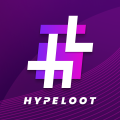승진
ICO 게시
동전
Calendar
암호화 이벤트
뉴스
DeFi
NFT
WEB3
Games
동향
-
KO
English Русский Deutsch Español French Italian Portugues Indonesian Turkish Dutch العَرَبِيَّة বাংলা 中文(简体) 한국 हिन्दी 日本語
- 로그인

The internet makes it possible for people located throughout the world to access shared information remotely. However, while certain information may be available to anyone, anywhere, the information itself is often stored on a single server or a number of proximate servers. The servers are directly related to one another and are controlled by one sole entity. This is a simple form of a centralized system. There are more advanced forms, but the common thread is that each centralized system is controlled by a sole entity and has at least one single point of failure. The positives of centralized systems (mainly simplicity and speed) have generally outweighed the negatives, resulting in the overwhelming majority of systems being centralized. However, centralized systems have a corollary — decentralized systems. Decentralized systems are powered by a set of independent and unrelated devices located throughout the world. The devices all run a custom application, communicating with each other over an application-specific protocol, and work together as a collective to achieve a shared objective. Unlike their centralized counterparts, a sole entity does not control all the devices. To the contrary, it is possible, and perhaps ideal, for there to be as many controlling entities as there are devices, with each entity controlling only one device. Devices may enter and leave the collective at will, at which point the system reallocates responsibilities within the collective. This fluidity, combined with with a large device set and a diverse control structure, allows for systems that, short of a total internet blackout, have no single point of failure. Decentralized systems can support new types of applications that their centralized counterparts cannot, as well as many types of applications that have traditionally been centralized. Applications supported by decentralized systems are called decentralized applications, and they benefit from no central ownership and no single point of failure. While this is theoretically significant, on a more pragmatic level, decentralized applications are becoming increasingly ubiquitous. At this time, decentralized applications have hundreds of millions of users, and over the last four years, the number of decentralized applications has grown exponentially. Furthermore, the diversity of decentralized applications has expanded tremendously, branching well beyond peer-to-peer file sharing and pure-play cryptocurrencies. Examples of decentralized applications that serve an expanded set of use cases include Augur (forecasting), Golem (supercomputing), Status (communication), 0x (token exchange), Nebulas (search), Civic (identity), and hundreds more.

















이 쿠폰은 쿠폰 제공자가 제공 한 정보 및 기타 공개적으로 제공되는 정보를 기반으로합니다. 토큰 판매 또는 교환 이벤트는 ICO 보유자와 전적으로 관련이 없으며 ICOholder는 이에 관여하지 않습니다 (기술 지원 또는 프로모션 포함). ICOholder와 관계가없는 사람들로부터 나열된 토큰 판매는 고객이 전반적인 토큰 부문에서 발생하는 활동을 추적하는 데 도움이되는 경우에만 표시됩니다. 이 정보는 귀하가 의지해야 할 조언에 해당하지 않습니다. 당사 사이트의 내용을 기반으로 한 조치를 취하거나 삼 가기 전에 전문가 또는 전문가의 자문을 구하거나 자신의 실사를 수행해야합니다. 토큰 획득과 관련하여 참가자가 입력 한 조건은 토큰과 ICO 소유자의 발행인이 그러한 토큰의 판매자가 아닙니다. ICO 소유자는 토큰 판매와 관련하여 제 3 자의 진술에 대해 법적 책임이 없으며 계약 위반에 대한 청구는 여기에 열거 된 토큰 발행 기관과 직접 체결해야합니다.
이 토큰 판매 또는 관련 인물의 성격, 적법성 또는 합법성에 대해 우려되는 점이 있으면 info@icoholder.com 에 문의하십시오. 귀하의 우려 사항에 대한 자세한 정보를 제공하십시오.